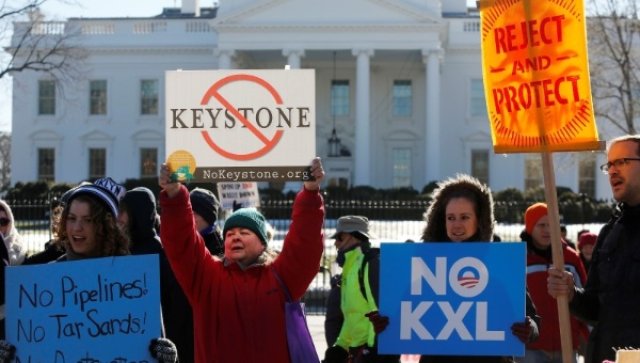
US President Obama vetoed a Republican bill approving the Keystone XL oil pipeline on February 24. Both houses of the Republican-dominated US Congress had passed a bill that approved building the highly controversial pipeline designed to bring crude from Alberta's tar sands in Canada to refineries in the US South.
The tar sands are especially toxic. In 2010, investigative journalist Dahr Jamal wrote: “The mining procedure for extracting oil from a region referred to as the 'tar sands', located north of Edmonton [in Alberta], releases at least three times the carbon dioxide emissions of regular oil production procedures and will likely become North America's single largest industrial contributor to climate change.”
Obama was widely expected to veto the bill. Senate Majority Leader Mitch McConnell immediately countered by announcing the Republican-led chamber would try to overturn the veto by March 3.
The passage of the bill by Congress was designed to put pressure on the president. However, Obama has said that he would hold off on a final decision until he receives a report from the US State Department that will evaluate if the pipeline would serve the US “national interest”.
Environmentalists have been pushing Obama to reject the pipeline. The decision to approve the construction of the pipeline rests with the executive branch of the US government via an executive order that was signed in 1968. That order grants the authority to approve cross-border facilities, such as oil pipelines, to the State Department.
However, there has been some debate among US members of Congress as to whether they retain the power to approve the cross-border pipeline. The Washington Post said a 2012 report from the Congressional Research Service determined that “if Congress chose to assert its authority in the area of border crossing facilities, this would likely be considered within its Constitutionally enumerated authority to regulate foreign commerce”.
[Reprinted from TeleSUR English.]
Like the article? Subscribe to Green Left now! You can also like us on Facebook and follow us on Twitter.